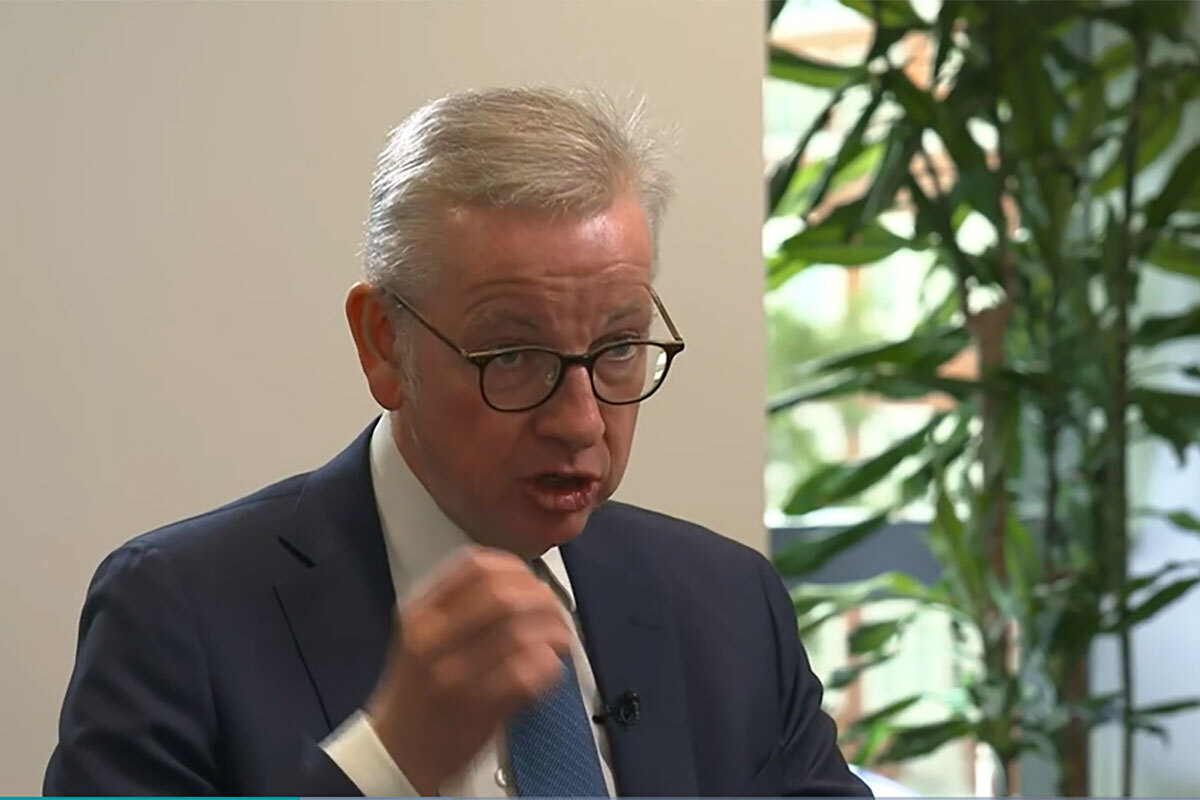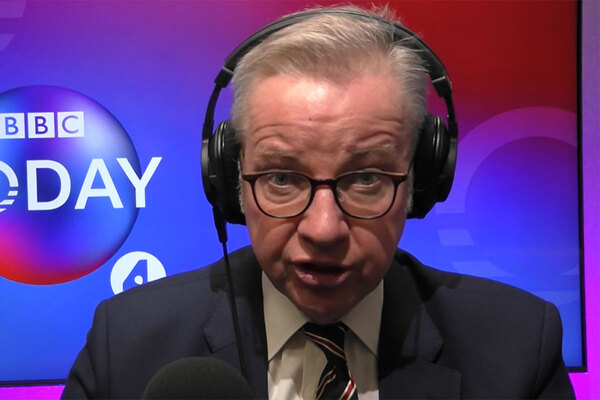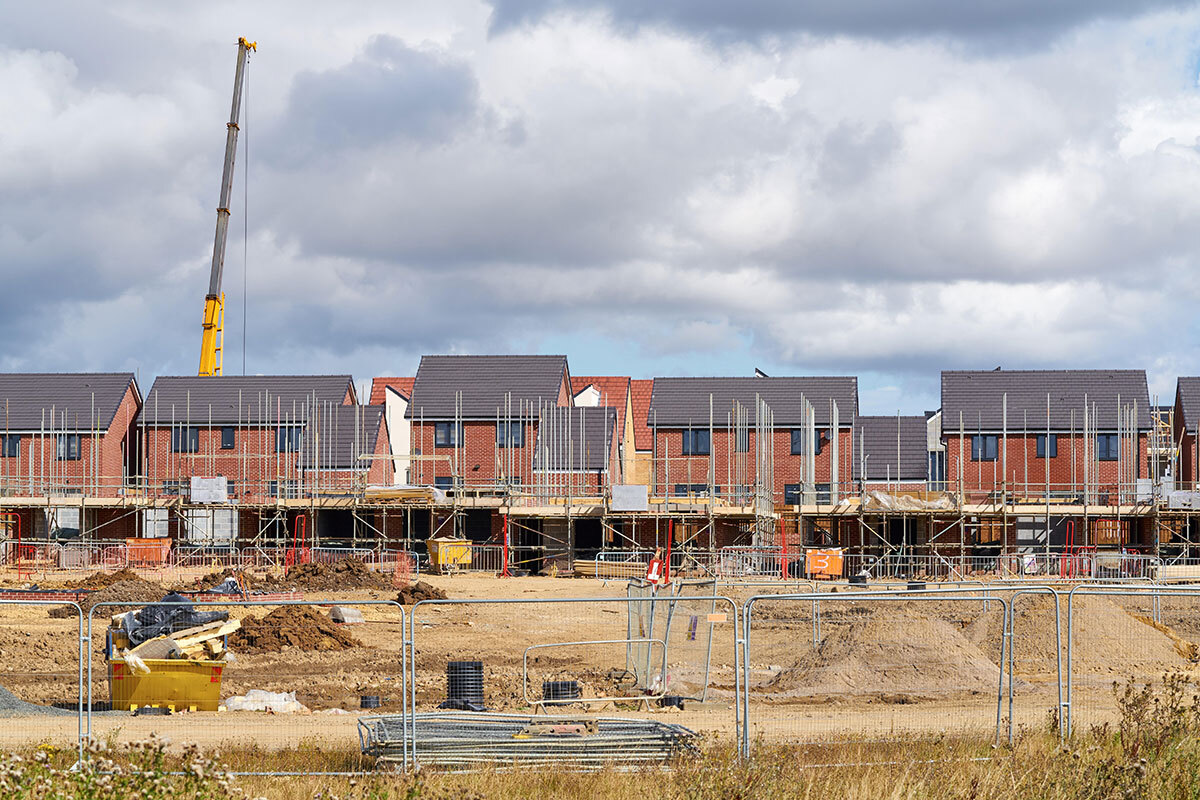You are viewing 1 of your 1 free articles
Gove says he would ‘like to see’ 30,000 new social rented homes per year
Housing secretary Michael Gove has pledged to build 30,000 new social homes per year to tackle the housing crisis.

In an interview with Daniel Hewitt, investigations correspondent at ITV News, Mr Gove said that within the government’s £11.5bn Affordable Homes Programme, he has “specifically insisted that we renegotiated and that we have more money being spent explicitly for homes for social rent”.
He said it is “indefensible” that working people are having to live in vans, caravans and hostels.
This marks the first time Mr Gove has given a figure for the number of social homes he wants to build.
The number of new social rent homes being built has fallen from 39,562 a year in 2010 to 7,644 in 2021-22 – the same year that 24,932 were sold under the Right to Buy and 2,757 were demolished.
When launching its inquiry into the financial sustainability of the social housing sector, Clive Betts, chair the Levelling Up, Housing and Communities Committee, said there is “compelling evidence that England needs at least 90,000 net additional social rented homes a year and it is time for the government to invest”.
Mr Gove said: “Tens of thousands of new homes for social rent will be built as a direct result of the way we have reprofiled that spending.
“I would like to see 30,000 new social homes being built at least every year.
“We need to step up. We have one more year until we have general election and we need to see a significant increase in the run-up to the election, and I want to see numbers increase after that.”
The housing secretary was speaking to Mr Hewitt, one of the journalists behind ITV’s major investigation into the state of social housing across England, ahead of the Social Housing (Regulation) Bill being given Royal Assent.
The bill is expected to become law as early as Thursday and comes two-and-half-years after the ITV investigation launched and more than six years after its catalyst, the Grenfell Tower fire, claimed 72 lives.
Councils and housing associations will be subject to more stringent and proactive consumer regulation, as well as inspections, alongside being obliged to report new tenant satisfaction measures to the Regulator of Social Housing.
The bill includes a clause known as Awaab’s law, named after two-year-old Awaab Ishak who died from prolonged exposure to mould in a Rochdale Boroughwide Housing flat. The clause will require landlords to respond to and investigate repairs within certain timescales, which are yet to be set.
Mr Gove said he thinks the bill will “make a big difference because we are putting those who are responsible for looking after tenants in social housing on notice”.
He stated that the government takes responsibility for the poor housing conditions uncovered by ITV.
“It is a shared responsibility, but I don’t think we can shuffle off responsibility for central government’s role, as well.
“We do need to make sure funding gets to the frontline and make sure there is an effective approach to regulation,” he added.
Last week, The Guardian revealed that the Department for Levelling Up, Housing and Communities had handed back hundreds of millions of pounds budgeted for 2022-23.
An analysis by the Chartered Institute of Housing estimated that 5,000 new affordable homes could have been funded from part of the £1.9bn underspend reported by the housing department.
Mr Gove said the money would be “reprofiled into future years” and insisted that “100%” the department would get that money back from the Treasury.
He added: “Because of the inflationary environment at the moment, there are constraints to our ability, on anyone’s ability, to build at the moment.
“What we need to make sure is that we have a sustainable, long-term housing plan for housing, and that money will be spent in future years.”
Sign up for our development and finance newsletter
Already have an account? Click here to manage your newsletters
Sign up to the Regulation and Governance Conference
A brand new housing sector conference shining a light on changing regulation and best practice governance – from financial and ethical governance, to ensuring a fair and good service for tenants.
Bringing together 250 UK housing governance professionals in one setting for the first time, this event is an unmissable opportunity to kick-start critical discussions around regulatory policy, tenant satisfaction, accountability, transparency and financial risk management.




